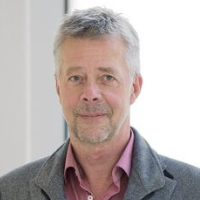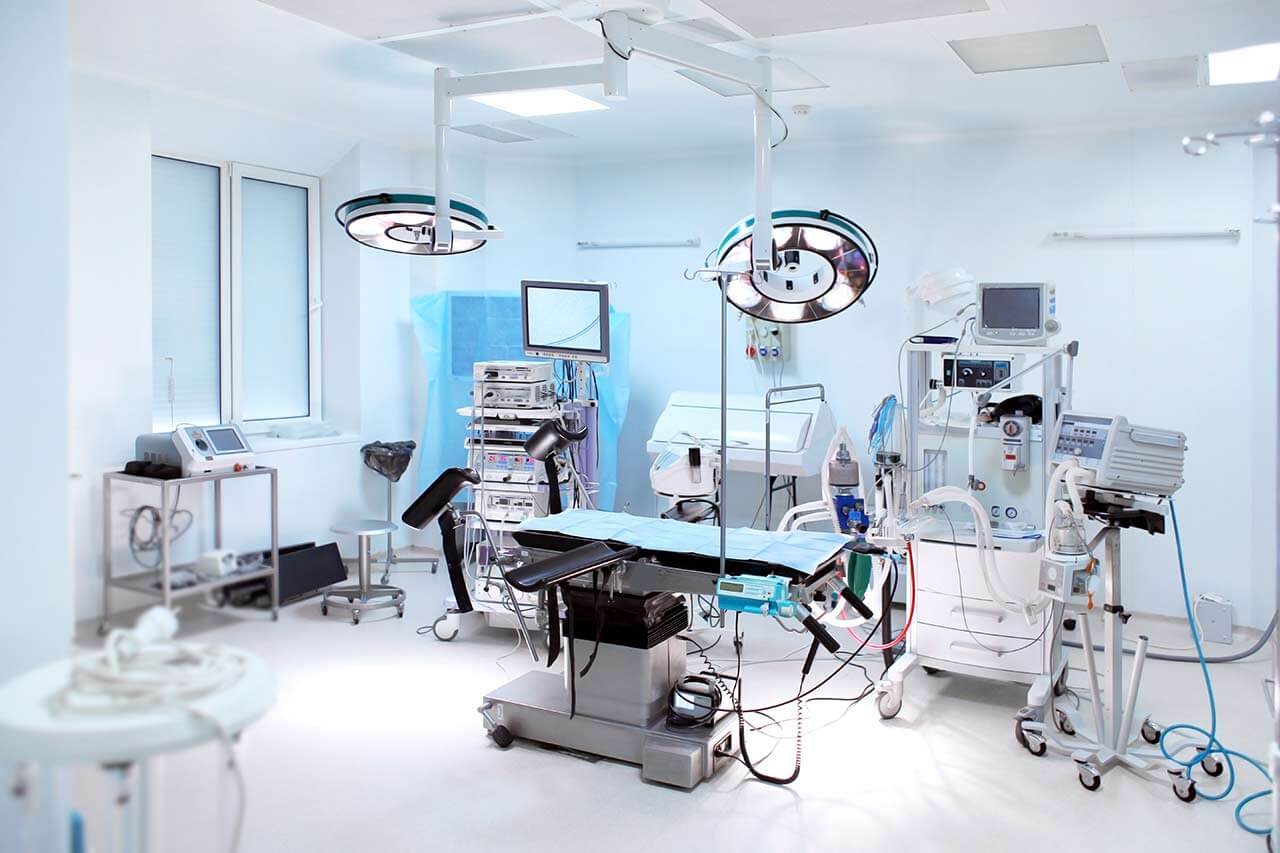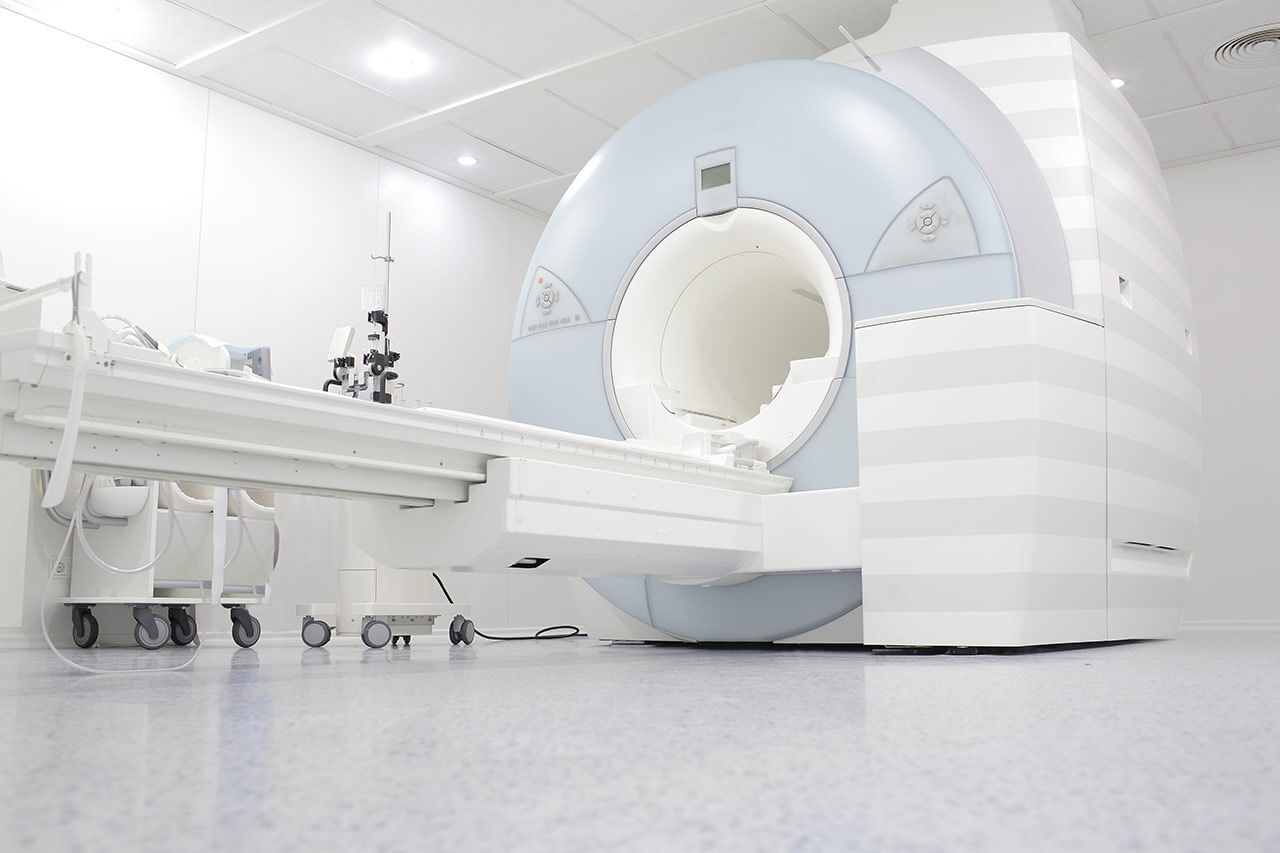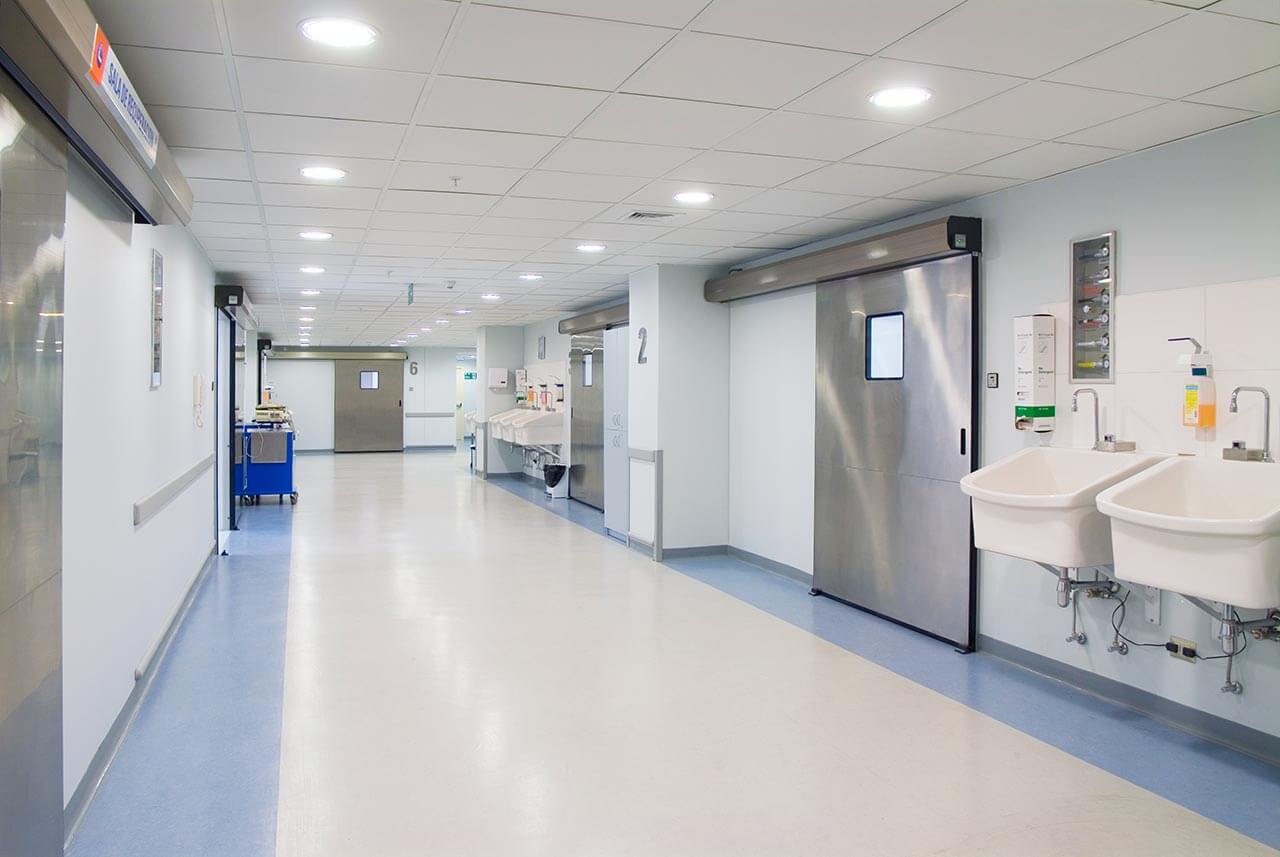
The program includes:
- Initial presentation in the clinic
- clinical history taking
- review of medical records
- physical examination
- laboratory tests:
- complete blood count
- biochemical analysis of blood
- Lipid metabolism (HDL/LDL, cholesterol,
triglycerides Lip(a), homocysteine) - blood coagulation analysis (aPTT, PT, INR)
- inflammation indicators (CRP, ESR)
- metabolic status (uric acid, total glucose, HbA1c)
- cardiovascular disease risk markers
- kidney function test (creatinine, urea)
- color doppler echocardiography
- color doppler sonography of cerebral peripheral vessels
- duplex peripheral arteries
- CT/ MRI-angiography of carotid artery
- preoperative care
- open repair of carotid artery aneurysm
- symptomatic treatment
- control examinations
- the cost of essential medicines and materials
- nursing services
- full hospital accommodation
- developing of further guidance
Required documents
- Medical records
- Doppler ultrasound/duplex scanning of the affected vessel (if available)
- MRI/CT scan with contrast enhancement, angiogram (if available)
Service
You may also book:
 BookingHealth Price from:
BookingHealth Price from:
About the department
The Department of Adult and Pediatric Neurosurgery, Spinal Surgery at the University Hospital Halle (Saale) specializes in performing surgical procedures of any complexity on the brain, spinal cord, spine, and peripheral nervous system in patients of all ages. The department's operating rooms are equipped with the latest technology to ensure the most effective and safe treatment of neurosurgical pathologies. During surgery, the department's specialists use innovative intraoperative neuromonitoring systems, neuronavigation devices, and continuous electrophysiologic monitoring systems. The department employs skilled neurosurgeons with extensive clinical experience and in-depth expertise, who prioritize effective treatment according to each patient's individual needs. The physicians strictly follow current clinical protocols and recommendations of the German Society of Neurosurgery (DGNC). It should be noted that the department is part of the Center for Neuro-Oncology certified by the German Cancer Society (DKG), has the status of a Center for Spine Surgery certified by the German Spine Society (DWG), and a Center for Skull Base Surgery certified by the German Society for Skull Base Surgery (GSB). The Head Physician of the department is Prof. Dr. med. Christian Strauss.
One of the most important areas of clinical activity of the department is the surgical treatment of brain diseases. Special attention is paid to the resection of benign and malignant brain tumors. The department's specialists successfully operate on patients with acoustic neuromas, gliomas, meningiomas, intraventricular tumors, brain metastases, epidermoid formations, and pituitary tumors. These surgical procedures are considered particularly complex because damage to vital areas of the brain during surgical manipulation can lead to irreversible neurological deficits. The neurosurgeons of the department mainly use minimally invasive techniques in the treatment of brain tumors, and in complex clinical situations they may resort to craniotomy (cranial trepanation). The excellent technical equipment of the department's operating rooms, combined with the outstanding professional skills of the neurosurgeons, allows for the most complex brain surgeries to be performed with successful results and a high degree of safety for the patient: advanced neuronavigation systems, intraoperative neuromonitoring, and continuous electrophysiological monitoring are used during surgery. In addition, the availability of state-of-the-art diagnostic imaging equipment in the department allows the specialists to pinpoint the location of a tumor in the brain and plan the surgical manipulation in advance.
The department's team of neurosurgeons is particularly skilled in the surgical treatment of acoustic neuroma, a slow-growing benign tumor characterized by a non-aggressive course. The classic symptoms of acoustic neuroma are hearing loss and vestibular dysfunction. In most cases, the only effective method of acoustic neuroma treatment is surgical resection. The tactics of surgical treatment depend on the size of the neoplasm and its growth rate. The department uses two main surgical strategies – radical removal of the tumor or reduction of its size to preserve the auditory nerve with subsequent irradiation. The neurosurgeons of the department perform neuroma resection surgery through the retrosigmoid approach, whose main advantage is the ability to preserve hearing, which cannot be achieved through the translabyrinthine approach often used by otolaryngologists. The specialists of the medical facility attach great importance to preserving the integrity and function of the facial and auditory nerves, therefore neurophysiological monitoring is always used during the operation. Doctors also apply the principles of neuroprotection, which is based on taking an individually prescribed set of medications to maintain and restore nerve function in the area of the pathological focus.
The department also provides medical care to patients with pathologies of the peripheral nervous system, the most common of which are carpal tunnel syndrome, cubital tunnel syndrome, tarsal tunnel syndrome, and tumors and injuries of the peripheral nervous system.Surgical procedures for the above conditions are performed using sparing microsurgical techniques under local anesthesia. In most cases, surgery is performed on an outpatient basis.
The department offers excellent services in spinal surgery. The medical facility performs surgeries to treat spinal and spinal cord tumors, inflammatory diseases of the spine (spondylitis), herniated discs, spinal canal stenosis, and chronic back pain. Specialists prefer sparing spinal surgery, so almost all interventions are performed here using minimally invasive, endoscopic, and microsurgical techniques. Minimally traumatic procedures provide good therapeutic results, while the risks of developing postoperative complications are practically zero, the patient is verticalized on the day of surgery, and recovery after surgical treatment takes a few days.
The department's range of surgical options includes the following:
- Surgical treatment of brain diseases
- Surgery for brain tumors
- Surgery for acoustic neuroma
- Surgery for gliomas
- Surgery for meningiomas
- Surgery for intraventricular tumors
- Surgery for pituitary tumors
- Surgery for epidermoid tumors
- Surgery for brain metastases
- Surgery for cerebral hemorrhages
- Surgery for acute and chronic subdural hematomas
- Surgery for epidural hematomas
- Surgery for intracerebral hemorrhages
- Surgery for cerebrovascular diseases
- Surgery for brain aneurysms
- Surgery for cavernomas
- Surgery for dural arteriovenous fistulas
- Surgery for arteriovenous malformations
- Surgery for hydrocephalus
- Surgery for brain tumors
- Surgical treatment of diseases of the peripheral nervous system
- Surgery for carpal tunnel syndrome
- Surgery for cubital tunnel syndrome
- Surgery for tarsal tunnel syndrome
- Surgery for tumors of the peripheral nervous system
- Surgery for injuries of the peripheral nervous system
- Surgical treatment of spinal diseases
- Surgery for spinal and spinal cord tumors
- Surgery for inflammatory spinal diseases
- Surgery for herniated discs
- Surgery for spinal canal stenosis
- Surgery for chronic back pain
- Surgical treatment of diseases of the nervous system in children and adolescents
- Surgery for brain and spinal cord tumors
- Surgery for meningocele
- Surgery for Arnold-Chiari malformations
- Surgery for spina bifida
- Surgery for tethered cord syndrome
- Surgeries for intraventricular hemorrhages
- Other medical services
Curriculum vitae
Current Positions
- Head Physician, Department of Adult and Pediatric Neurosurgery, Spinal Surgery, University Hospital Halle (Saale).
- Director, Interdisciplinary Centre for Neuro-Oncology, University Hospital Halle (Saale).
Clinical Interests
- Surgical procedures for acoustic neuromas.
- Surgical procedures for skull base tumors.
- Surgical procedures on the brainstem.
- Surgical procedures for neurovascular diseases.
- Surgical procedures for diseases of the nervous system in children.
Research Interests
- Intraoperative neurophysiological monitoring using the Hallenser Ampel system.
- Neuroprotection.
Memberships in Professional Societies
- German Society of Neurosurgery (DGNC).
- German Society for Skull Base Surgery (GSB).
- German Society for Clinical Neurophysiology (DGKN).
- American Society of Neurophysiological Monitoring (ASNM).
- International Society of Intraoperative Neurophysiology (ISIN).
Photo of the doctor: (c) Universitätsklinikum Halle (Saale)
About hospital
According to the prestigious Focus magazine, the University Hospital Halle (Saale) is one of the best medical institutions in Germany!
The history of the hospital goes back more than 300 years, and during this time it has managed to gain an excellent reputation not only in Germany, but also throughout the world. The hospital positions itself as a specialized healthcare facility for the treatment of severe and rare diseases and injuries. The hospital provides medical care to patients of all ages in compliance with the latest scientific achievements. The hospital is distinguished by successful research activities, especially in the field of cardiovascular diseases and oncopathologies – the specialists in these areas have made significant contributions to the development of the very latest diagnostic methods and therapeutic approaches.
The University Hospital Halle (Saale) has 30 specialized departments representing almost all areas of modern medicine, as well as 17 narrowly focused institutes. About 35,000 patients receive qualified medical care of European standards in the hospital every year, and more than 212,000 patients are served on an outpatient basis. This number of patients is evidence of the high efficiency of medical services and the excellent image of the hospital in the international medical arena; patients from all over the world regularly seek medical attention here.
Some of the hospital's structural units deserve special attention. For example, the Central Emergency Department (the largest in Saxony-Anhalt), modern dental clinics, the Perinatal Center, and the Transplant Center, which has a history of more than 40 years. The Transplant Center performs more than 40 kidney transplants annually, most of them from living donors.
Thanks to the use of the latest medical technologies and the availability of state-of-the-art equipment, many previously high-risk surgeries and procedures can now be performed in the hospital using sparing techniques. In this context, hybrid cardiac surgery and robotic surgery using the innovative da Vinci Si® system in urology are worthy of mention.
An integral part of the successful clinical practice of the University Hospital Halle (Saale) is the availability of experienced and competent medical staff. The total number of employees at the hospital is more than 4,450. Many physicians are known far beyond the borders of Germany: they regularly conduct important research that enables the development of modern medicine. In addition, the hospital specializes in training medical students, so qualified doctors and professors are willing to pass on their experience to the younger generation.
The hospital has many quality certificates such as DIN EN ISO 9001:2015 certificate, German Cancer Society (DKG) certificate, JACIE certificate, EndoCert certificate, ClarCert certificate, German Spine Society (DWG) certificate, German Trauma Society (DGU) certificate, CERT iQ certificate, LGA InterCetert certificate, and others.
Photo: (с) depositphotos
Accommodation in hospital
Patients rooms
The patients of the University Hospital Halle (Saale) stay in comfortable single, double, and triple rooms with a modern design. All patient rooms have an ensuite bathroom with a toilet and a shower. The standard patient room includes a comfortable automatically adjustable bed, a bedside table, a wardrobe, a table and chairs for receiving visitors, a TV, a radio, and a telephone. The patient rooms have access to Wi-Fi. For safety reasons, the use of laptops and cell phones is prohibited in some areas, including the intensive care units. The hospital also offers enhanced-comfort patient rooms.
Meals and Menus
The hospital offers delicious and well-balanced meals three times a day: breakfast, lunch, and dinner. Patients and their companions can choose from three daily menus, which always include dietary dishes. If necessary, an individual menu can be prepared for the patient. Children are offered a special menu with healthy and tasty dishes, rich in nutrients necessary for a growing body.
Further details
Standard rooms include:
![]() Toilet
Toilet
![]() Shower
Shower
![]() Wi-Fi
Wi-Fi
![]() TV
TV
Religion
Religious services are available upon request.
Accompanying person
Your accompanying person may stay with you in your patient room or at the hotel of your choice during the inpatient program.
Hotel
Your accompanying person may stay with you in your patient room or at the hotel of your choice during the inpatient program.




